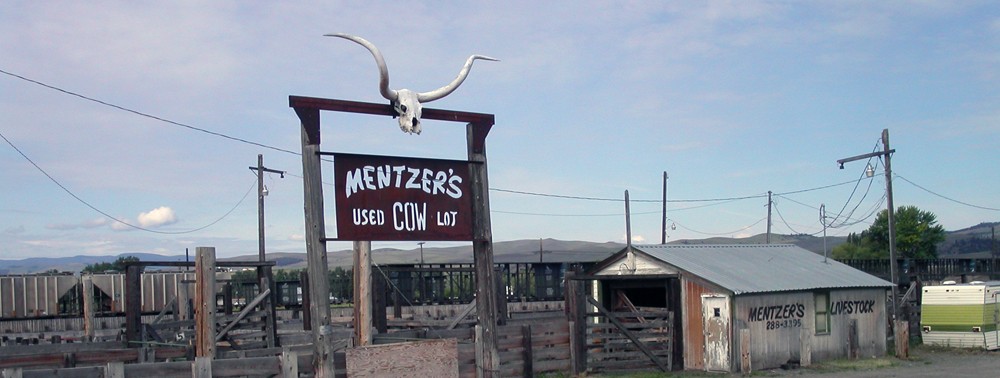Last year, Philadelphia City Paper folded after 34 years in print. I read it religiously while I attended the University of Pennsylvania. I was excited when I got a chance to write for the weekly — almost as much as I was when I got my first Philadelphia Inquirer byline four months earlier.
And, I was devastated when I read that it was going out of print.
My disappointment stemmed partly from nostalgia and partly from concerns about the future of local news reporting. As local news reporting organizations are disappearing, so too are their roles informing people and holding public officials accountable for their actions. As a historian, I also was concerned about what the closures meant for online newspaper archives and for what’s popularly known as history’s first draft.
Would the reporting gap go unfilled or will “Reporterishes” — near-news sites with Sybil-like self-appointed CEOs, publishers, editors, ombudsmen, and reporters flow into the gaping craters left behind? Their sites are like Wal-Mart Supercenters: everything under one big roof. As far as the Reporterishes go, the big roof is the hat covering huge ego-expanded heads. Who knows what the future holds for local journalism.
But I digress. Back to nostalgia.
I was writing about blues and folk music back in 1991 when PCP editor/founder Bruce Schimmel gave me a chance to write about the city’s blues scene. I interviewed local club owners, radio personalities, and musicians for a 300-word article that ran the week of October 25, 1991.

Philadelphia City Paper, October 25, 1991.
While cleaning up some old files recently I found my reporting notes for the article, including some interview excerpts written in longhand on yellow legal paper. Among the notes I found a partial transcript from my interview with WXPN radio personality Jonny Meister, host of the station’s Saturday night blues show since 1977.
Only a sentence from my phoner with Meister made it into the article, which described a pretty low-key blues scene in the city. Meister warned me that no matter what I wrote, it was going to piss some folks off.
He was right. Here’s what he told me in October 1991:
There really isn’t a major blues scene in Philadelphia. A lot of people are gonna take offense, though, if you write that.
I asked him why and he replied, “Because they’d probably say there is.”
Meister was right. Shortly after the PCP article ran I got a call from Schimmel. He told me that my article had generated lots of angry calls from readers disputing what I had written. Schimmel said that my brief article had gotten the most angry feedback of any music article he could recall.
Schimmel warned me that the next issue would reflect the reader response. He also told me that he wouldn’t run any more of my work until I got a better understanding of the city — I had just returned to Philly after a two-year hiatus from grad school.
True to his word, Schimmel published one reader letter beneath the headline, “Screwed Blues.”

Philadelphia City Paper, November 1, 1991.
This was in the pre-Internet days — just imagine what would have happened had my piece been published online?
The blues scene article was my first and final PCP piece. In hindsight, I probably should have stood my ground a little more firmly. Meister’s explanation for why Philly’s blues fans would react so strongly to any assertion that their blues scene was somehow lesser than other cities’ should have quelled my editors concerns but I never got a chance to share that with him.
Meister’s words should have been all I needed:
I mean there’s no club devoted strictly to blues. And, there are a lot of mediocre bands.
I don’t think there’s much of a tradition. Blues, as opposed to other kinds of R&B, has never been as big in Philadelphia as it has been in other cities. There’s a great appreciation for the music. What there isn’t is a lot of musicians who are her as opposed to Chicago, New York.
Why am I writing about this now, months after all of PCP’s obituaries ran? Because the idea that journalists provide historians with a lot of raw material that’s often taken at face value really resonates with me as I write an article on an urban legend and its ties to history and space.
It turns out that the journalists who popularized the story that had been floating around African American churches, barbershops, and homes for decades got key details about its transmission wrong. As a result, a generation of historians has repeated the mistakes in journal articles and books.
In an age where digitized newspaper archives create tremendous economic advantages for public historians, especially those working in regulatory compliance and historic preservation, there’s a danger that what’s written and preserved in those archives will end up influencing future policies and thinking. Like designating private properties historic and all of the regulatory burdens that accompany such decisions. Or not designating them, leading to the loss of historically significant sites.
The ties binding history and journalism are complicated and thought-provoking. My experience with PCP made me a better researcher and reporter. And now, as I work through the messy intersection where legends, rumors, history, reporting, and race collide, I’m always cautious to avoid ever seeing another headline about my work that reads “Screwed” anything.
Note: The term “Reporterish” originated with a Georgia resident who replied to me in a February 2014 email exchange where I wrote, “Y’all have some real sharp ‘reporters’ there.” His response was, “I think you mean ‘reporterish’.”
© 2016 D.S. Rotenstein
Shortlink for this post: https://wp.me/p1bnGQ-2PJ
